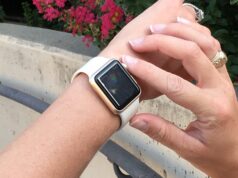
The use of mobile smartphones and tablets that run applications (apps) to function as clinical examination tools, reference databases, technique guides, or medical calculators is today a reality in hospitals and healthcare centres; but what about their safety, accuracy and validation, Enrico Gianluca Caiani (Milan, Italy) writes for Cardiac Rhythm News. He spoke on the subject at EHRA EUROPACE – CARDIOSTIM (21–24 June, Milan, Italy).
Patients’ expectations are arising for utilisation of this technology, as shown by a recent survey1 undertaken amongst 2,535 American adults, in which 65% of these want doctors to incorporate technology into their recommended care and 71% reported they would use technology to track their fitness goals.
The apps utilisation by patients could potentially reveal positive effects, both in lifestyle improvement (ie. diet control for diabetes prevention, smoke prevention, activity tracker as motivational aid), medication adherence, or as self-assessment of physiological parameters. However, physicians appear split in opinion on whether they should “prescribe” medical apps to their patient or not2: over 1,500 physicians, 37% have prescribed a mobile medical application to their patients, but 42% won’t prescribe apps because there is no clear regulatory oversight of them.
While pervasiveness of smartphone and apps utilisation is increasing day-by-day, recent reviews3,4 suggest healthcare providers and organisations to act with caution. This is due to potential quality and validity concerns of apps available in the “Medical” or “Health and fitness” categories of App Stores, where unreliable and unregulated health apps could pose a significant threat to patients’ safety. Moreover, privacy, security, and data confidentiality for apps users should be always guaranteed, as cellular technology is a surveillance technology that always tracks the handset location, it is potentially able to reveal highly personal information such as social interactions, location, emotion, and other potentially sensitive health-related data.
Strategies for apps evaluation
So, how healthcare providers and organisations could evaluate and select amongst publically available apps targeting health behaviour or health maintenance to recommend to the general public? Unfortunately, there is no generally accepted way of ascertaining quality for health and medical apps that have not been already FDA-approved or CE-marked as medical device.
Several strategies have been proposed for evaluating and selecting health-related apps5:
- Review the scientific literature for systematic reviews: however, the conventional research publishing cycle (submission – review – acceptance – publication) is impractical for such a high speed evolving market, resulting in outdated literature.
- Use of app clearinghouse websites: notable efforts by public and private organisations have begun to help organise, review and certify apps, by pre-evaluating usability, functionality, accuracy or evidence-based supporting the app6,7. Main limitations in this approach are related to dependence on applied evaluation methods of quality of reviews, inherent delays before publication of results, and, when profit-driven, business strategy of the clearinghouse website, which is unknown to the user.
- Search in app stores for apps for a specific need: unfortunately, apps stores are specific to the device platform and a single search is not possible. In addition, use of ranking algorithms list first apps that are more popular, but with no relation to their effective quality.
- Review app descriptions, user ratings, and reviews: while user rating is assumed as proxy for usability and functionality and number of ratings for popularity and longevity, user reviews or ratings provide no scientific value and may be misleading due to health illiteracy. In contrast, specialised reviews by independent teams of physicians and allied professionals based on own experiences in the hospital and clinic setting8 could give more reliable information, hence limited.
In addition to these strategies, other possible factors influencing apps reliability to keep in mind are the following:
- the most reliable medical app tends to result from collaboration among developers, physicians and experts in health law;
- the majority of app developers have little or no formal medical training and do not involve physicians in the process, being unaware of patient safety issues due to inappropriate content;
- not all apps with potential medical impact are undergoing regulatory process: developers may be unaware of the requirements, or may be willing to avoid regulatory processes, thus saving time and money;
- if you are not paying for the app, probably you are not the customer: you and your data are the product being sold.
Conclusions
Despite pervasiveness of mobile apps with health-related content, reliable tools to address their validity are limited. Due to variety of non-standardised possible approaches and solutions physicians should be aware of the inherent limitations of apps and should personally take precautions to ensure that safe medicine is delivered.
To fill in this gap, specific guidelines should be promoted by professional associations in order to create a systematic health-related app evaluation framework. Within this framework, professional associations should directly or indirectly support the creation of app clearinghouses or certification schemes to identify high quality health apps for recommendation to specific groups of patients.
References
- https://mobihealthnews.com/44262/ – last access 21/07/2015
- https://www.fiercemobilehealthcare.com/story/physicians-split-use-mhealth-apps/2014-02-24 – last access 21/07/2015
- Bruining N, Caiani EG, Chronaki CE, Guzik P, van der Velde ET. Acquisition and analysis of cardiovascular signals on smartphones: potential, pitfalls and perspectives: By the Task Force of the e-Cardiology Working Group of European Society of Cardiology. European Heart Journal for Preventive Cardiology 2014;21(2 Suppl): 4–13
- Kumar N, Khunger M, Gupta A, Garg N. A content analysis of smartphone–based applications for hypertension management. J Am Soc Hyperten 2015;9:130–6
- Boudreaux ED, Waring ME, Hayes RB, Sadasivam RS, Mullen S, Pagoto S. Evaluating and selecting mobile health apps: strategies for healthcare providers and healthcare organizations. Transl Behav Med 2014 Dec;4(4):363–71
- https://apps.nhs.uk/ – UK National Health Service, last access 26/07/2015
- https://www.calidadappsalud.com/ – last access 26/07/2015
- https://www.imedicalapps.com/ – last access 26/07/2015
Enrico Gianluca Caiani is associate professor in Biomedical Engineering and e-Health at Politecnico di Milano, Electronics, Information and Bioengineering Department, Milan, Italy. He is also serving as vice-chairperson in the Working Group of e-Cardiology, European Society of Cardiology









